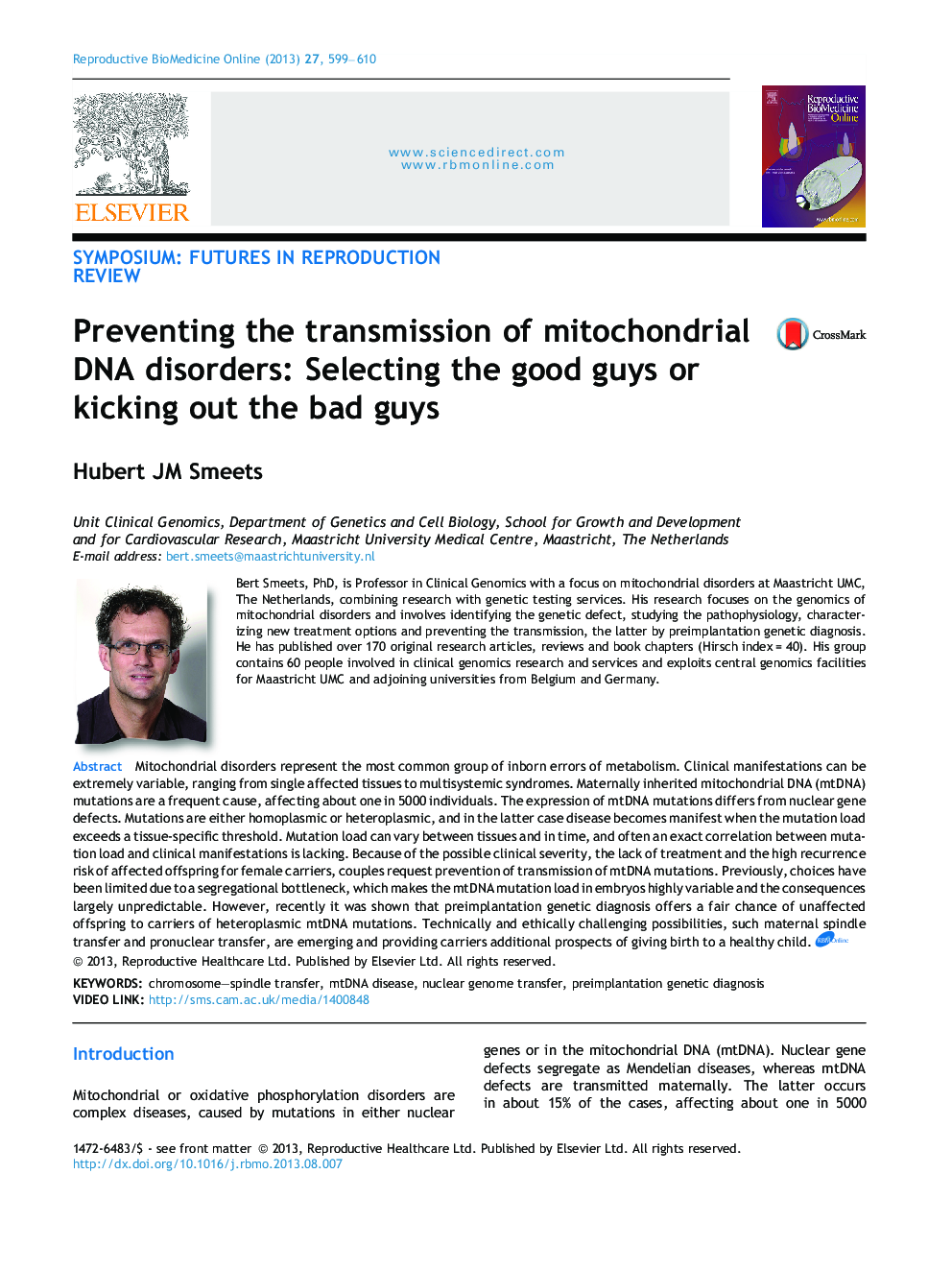| کد مقاله | کد نشریه | سال انتشار | مقاله انگلیسی | نسخه تمام متن |
|---|---|---|---|---|
| 3970214 | 1256710 | 2013 | 12 صفحه PDF | دانلود رایگان |

Mitochondrial disorders represent the most common group of inborn errors of metabolism. Clinical manifestations can be extremely variable, ranging from single affected tissues to multisystemic syndromes. Maternally inherited mitochondrial DNA (mtDNA) mutations are a frequent cause, affecting about one in 5000 individuals. The expression of mtDNA mutations differs from nuclear gene defects. Mutations are either homoplasmic or heteroplasmic, and in the latter case disease becomes manifest when the mutation load exceeds a tissue-specific threshold. Mutation load can vary between tissues and in time, and often an exact correlation between mutation load and clinical manifestations is lacking. Because of the possible clinical severity, the lack of treatment and the high recurrence risk of affected offspring for female carriers, couples request prevention of transmission of mtDNA mutations. Previously, choices have been limited due to a segregational bottleneck, which makes the mtDNA mutation load in embryos highly variable and the consequences largely unpredictable. However, recently it was shown that preimplantation genetic diagnosis offers a fair chance of unaffected offspring to carriers of heteroplasmic mtDNA mutations. Technically and ethically challenging possibilities, such maternal spindle transfer and pronuclear transfer, are emerging and providing carriers additional prospects of giving birth to a healthy child.Mitochondrial disorders represent the most common group of inborn errors of metabolism. Clinical manifestations can be extremely variable, ranging from single affected tissues to multisystemic syndromes. Maternally inherited mutations in the mitochondrial DNA (mtDNA) are a frequent cause, affecting about one in 5000 individuals. The expression of mtDNA mutations differs from nuclear gene defects. Mutations are either homoplasmic (100% mtDNA mutated) or heteroplasmic (mixture wild-type and mutated mtDNA) and in the latter case disease become manifest when the mutation load exceeds a tissue-specific threshold. Mutation load can vary between tissues and in time, and often an exact correlation between mutation load and clinical manifestations is lacking. Because of the possible clinical severity, the lack of treatment and the high recurrence risk of affected offspring for carrier females, couples request to prevent transmission of mtDNA mutations. For many years, choices have been limited due to a segregational bottleneck, which makes the mtDNA mutation load in embryos highly variable and the consequences largely unpredictable. However, recently it was shown that preimplantation genetic diagnosis (or embryo selection) offers carriers of heteroplasmic mtDNA mutations a fair chance of unaffected offspring. New technically and ethically challenging possibilities, such as maternal spindle transfer and pronuclear transfer, in which the nuclear DNA is transferred from an oocyte or zygote containing mutated mitochondria into an enucleated oocyte or zygote containing normal mitochondria, are emerging at the horizon and are providing carriers with additional prospects of giving birth to a healthy child.VIDEO LINK:http://sms.cam.ac.uk/media/1400848
Journal: Reproductive BioMedicine Online - Volume 27, Issue 6, December 2013, Pages 599–610